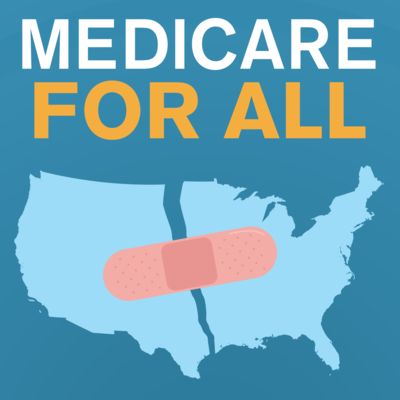episode 47: Build Back Better & Healthcare for the Homeless
This week, we’re teaming up with the Poverty Policy Podcast and the National Healthcare for the Homeless Council for a crossover episode! We discuss the Build Back Better bill and weigh its potential impact on individuals experiencing poverty and houselessness. Show Notes The National Health Care for the Homeless Council is a membership organization uniting thousands of health care professionals, people with lived experience of homelessness, and advocates working towards the goal of improving health care and ending homelessness. Their podcast, Poverty Policy Podcast, explores the connection between structural and social policy issues and poverty. Our special guests are Courtney Pladsen, DNP, FNP-BC, RN: Director of Clinical and Quality Improvement, and Barbara DiPietro, PhD: Senior Director of Policy. We discuss some of the common misconceptions about people experiencing homelessness and healthcare. Homelessness isn't a moral failing, and people experiencing homelessness do make healthcare a priority despite the barriers to care they face. To access healthcare, people experiencing homelessness have to overcome things like access to transportation, lack of cell phones or internet, making time while trying to get all your needs met, and of course lack of insurance. Poor and homeless people also face a lot of stigma and racism in the healthcare system. Getting insurance coverage is a hassle under the best circumstances; for people experiencing homelessness it's even more difficult, with barriers including eligibility requirements, complicated enrollment processes, steps that require an address, and automatic unenrollment because you missed a phone call or a letter. NHCHC’s membership spans health care providers as well as people who have experienced homelessness. NCHCH engages the people they serve in the work they do because the people who are most affected by the problem should be at the forefront of the solution. In Build Back Better news, the BBB bill has some potential to improve social determinants of health by including the Medicare Expansion measures we've been advocating for. The bill has now passed the House… AGAIN… under a greatly reduced budget, and the bill’s fate now rests with the Senate. The version of the bill that passed the House will add sorely-needed hearing coverage to Medicare, but will NOT include dental or vision coverage. The most recent version of the BBB bill also includes drug price “compromise” provision that will do three things: Limit the amount that Medicare patients will pay out of pocket for drug coverage.Restrict how much drug manufacturers can increase prices each year.Will allow Medicare to negotiate prices with drug manufacturers of some drugs- of no more than 10 (in 2025), 15 (in 2026 and 2027), and 20 (in 2028 and later years), excluding any and all new drugs. For reference, the FDA approved 53 new drugs last year alone. In addition, the BBB bill will cap out-of-pocket insulin prices at $35/month - for individuals who already have insurance. In other words, it’s a cap on co-pays, not on the actual cost of insulin. Other Build Back Better pieces that will improve healthcare and impact social determinants of health: In-home healthcare: The bill includes $150 billion for a Medicaid program that supports in-home healthcareExpanding existing programs and institutionalizing COVID protections: Expands eligibility for health insurance marketplace subsidies to include anyone for whom the cost of benchmark coverage would exceed 8.5% of their income. There are some other similar measures intended to decrease ACA premiums. Individuals living in states that refused to expand Medicaid will be eligible for $0 premiums. CBO estimates premiums will drop by average of $600/year for ACA enrolees.Federal Childrens Health Insurance Program (CHIP) funding will be made permanentMaternal health care - Medicaid and CHIP must provide 12 months of postpartum co...
